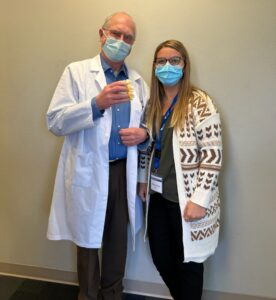Our UW Premera RNHI ARNP fellows take part in specialty rotations in order to learn more about specialty practice and to build relationships with whom they’re making referrals, which allows them to provide better care for their rural patient populations. They learn when to refer and when not to. They also learn what tests or treatments specialists prefer being done prior to a referral being made. Often new graduates send more referrals than other providers; the hope is that learning directly from specialists will cut down on unnecessary referrals.
Specialty rotations occur throughout the fellowship year with an average of 6 unique experiences per fellow. The exact number and duration of each specialty rotation is dependent on a multitude of factors including specialty site availability, travel distance, and specialty skills needed by the fellow and/or their fellowship site. Some specialty rotations occur “in house” while others require 2-4 days of practice / observation at specialty sites (travel-related costs incurred by our fellows are reimbursed by the UW Premera RNHI grant).
Our fellows have had specialty rotations in the following practice areas: 
- Dermatology
- ENT
- Gastroenterology
- Jail health
- Medication Assisted Treatment
- Neurology
- Orthopedics
- Pediatrics
- Podiatry
- Primary care for homeless populations
- Psychiatry
- Tribal health
- Walk-in / urgent care
Our fellows also learn that in more rural, remote areas of the state, specialty providers are scarce. “In a rural area, you don’t have nearly the access to specialty providers that you do in a city so you have to necessarily practice at a higher level and at the top of your scope just because there isn’t anybody else. It forces you to be more proficient and intentional about learning opportunities and training opportunities.” – Matthew Johnson, FNP at Republic Medical Clinic (Cohort 2: 2022-2023)